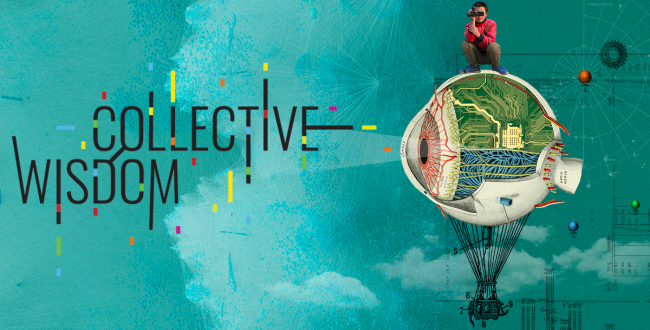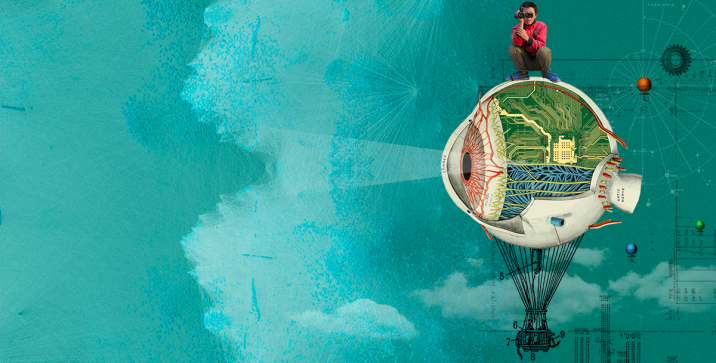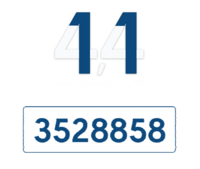
The Co-Creation Studio at MIT Open Documentary Lab is publishing Collective Wisdom: Co-Creating Media within Communities, across Disciplines and with Algorithms. This first-of-its-kind field study of the media industry highlights trends, opportunities, and challenges to help advance the understanding and recognition of co-created works and practices — efforts that live outside the limits of singular authorship.
The report’s key discoveries include tracking these trends:
- Co-creation and collective media practices are remarkably commonplace and yet invisible, underfunded and often underreported.
- All over the world, journalists, artists and documentarians co-create within communities, across disciplines and with algorithms to make new forms of media that align with scientific discovery and social movements, in ways that are not attributable to one sole author.
- Co-Creation is described by its practitioners as an antidote to the Trump effect, and the cult of the individual, to confront the large issues of this historical moment through collective action.
“Co-creation carries with it a profound respect for each person’s unique expertise, and also the knowledge that we must share both the burden and the liberation of determining our future collectively. There is an urgency to the challenges we face in this moment in history, and no one person, organization, or discipline can determine all the answers alone.”
— Katerina Cizek and William Uricchio, Collective Wisdom
Collective Wisdom brings together knowledge from interviews and group conversations with 166 practitioners, thought leaders and scholars, 222 readings, and 251 media projects.
Collective Wisdom lives online as an interactive report, at a Massachusetts Institute of Technology (MIT) new online platform, PubPub, allowing readers to dive into the research findings and contribute their knowledge to dynamic community discussions. The Open Doc Lab’s conversation around co-creation is just beginning, with further responses to Collective Wisdom to be published on Immerse, an online publication about emerging nonfiction storytelling.
“Making can divide, alienate, and exploit — or it has the potential to be inclusive, equitable, and respectful… In reaching beyond the mere sum of our collective intelligence, we stand a chance at finding our collective wisdom. Co-creation offers hope.”
— Katerina Cizek and William Uricchio, Collective Wisdom
Collective Wisdom comes from the MIT Open Documentary Lab’s Co-Creation Studio, a new initiative that incubates and researches alternatives to singular authorship in art, journalism and documentary, with a focus on emergent technologies. The lead authors of the report are two-time Emmy winning documentary maker Katerina Cizek (Highrise, Filmmaker-in-Residence, Artistic Director of Co-Creation Studio) and media scholar William Uricchio (MIT professor, principal investigator of the Open Documentary Lab). Co-authors are accomplished artists, writers, and scholars: Juanita Anderson, Maria Aqui Carter, Detroit Narrative Agency, Thomas Allen Harris, Maori Holmes, Richard Lachmann, Louis Massiah, Cara Mertes, Sara Rafsky, Michèle Stephenson, Amelia Winger-Bearskin, and Sarah Wolozin. The larger research team includes MIT alumni, graduate students and affiliates.
The report presents interviews, case studies, historical trends, and current issues in co-creation. Takeaways include tactical recommendations for supporting/funding co-creation work and a manifesto for co-creation. The report devotes a large section each to investing co-creation within communities, across disciplines, and with nonhuman systems. Highlights include co-authored chapters by Scribe Video Center director Louis Massiah, Amelia Winger Bearskin, and a case study of the interdisciplinary arts/sciences interaction studio Hyphen-Labs, along with the work of multimedia/AI artist Sougwen Chung. Beyond written components, the report features a photo essay of the Detroit Narrative Agency, as well as an interactive feature of associated practices in diverse fields, as well as extensive lists of relevant readings and projects.
“Everyone has something to say and something valuable and something important or interesting… The more people, I think, are invested in making space, new stories and new ways of telling stories, the better off we all are.”
— Hank Willis Thomas, interviewed in Collective Wisdom
Readers can dive into the report for themselves online at PubPub, MIT’s new open publishing platform. The Open Doc Lab’s conversation around co-creation is just beginning, with further responses to Collective Wisdom to be published on Immerse, an online publication about emerging nonfiction storytelling.
Funding and other support for this work was provided by JustFilms/Ford Foundation, the John D. and Catherine T. MacArthur Foundation, Ryerson University, and The Fledgling Fund.
____
Co-Creation Studio, MIT Open Documentary Lab
Collective Wisdom Report: wip.pubpub.org/collectivewisdom
Website: cocreationstudio.mit.edu/
Immerse Extended Series: immerse.news/
Trailer: youtu.be/apKPou8gqxY
Twitter: @opendoclab
Instagram: @CoCreationStudio




